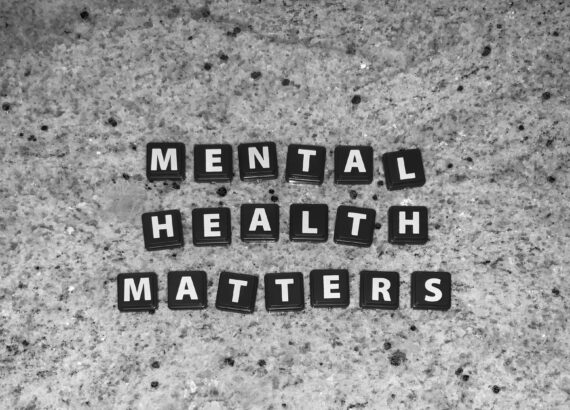Top 7 Exercises for Physiology and Mental Health

Top 7 Exercises for physiology and mental health
Regular exercise is not only crucial for maintaining physical fitness but also plays a pivotal role in promoting overall well-being, including both physiology and mental health. The profound connection between exercise and our bodies goes beyond mere calorie burning and muscle toning.
Engaging in physical activity stimulates various physiological responses that optimize our bodily functions, while also exerting positive effects on our mental state.
In this article, we will explore the top exercises that contribute to both physiological improvements and mental well-being. By understanding the impact of exercise on our bodies and minds, we can harness its power to enhance our overall quality of life.
Enhance your physiology and mental health with these effective workout routines.
1. Introduction: The Link Between Exercise, Physiology, and Mental Health
An Overview of Exercise’s Impact on Physiology
Exercise isn’t just about burning calories and sculpting beach-ready bodies. It has a profound impact on our physiology, affecting our cardiovascular health, muscular fitness, weight management, and energy levels.
The Connection between Exercise and Mental Health
Exercise isn’t just a physical activity; it’s a powerful tool for boosting mental well-being too. Regular exercise has been linked to reduced stress, improved mood, increased self-confidence, and even alleviation of symptoms in conditions like anxiety and depression. So, let’s lace up those sneakers and get moving!
2. The Benefits of Physical Activity on the Body and Mind
Improved Cardiovascular Health
When you exercise, your heart gets a workout too. Cardiovascular exercises like running, cycling, and swimming strengthen your heart muscles, lower blood pressure, and improve circulation. So, go ahead and get that blood pumping!
Enhanced Strength and Muscular Fitness
Strength training exercises, such as weightlifting and bodyweight exercises, not only make you look strong, but they make you strong. Building muscle and increasing strength improves overall physical performance and reduces the risk of injuries. Plus, who doesn’t want toned arms?
Weight Management and Metabolism Boost
Regular exercise helps to maintain a healthy weight by burning calories and boosting your metabolism. So, whether you want to shed a few pounds or simply maintain your current weight, exercising regularly is key. Bonus: you can enjoy guilt-free servings of ice cream!
Increased Energy and Endurance
Feeling sluggish? Exercise can help with that too. Consistent physical activity increases your energy levels and endurance by improving oxygen delivery and efficiency in your body. Say goodbye to that mid-afternoon slump!
3. Cardiovascular Exercises for Improved Physiology and Mental Well-being
Running and Jogging
No treadmill is required! Running and jogging are great cardiovascular exercises that can be done outdoors, allowing you to experience fresh air and beautiful scenery while improving your physical fitness and mental well-being. Just don’t forget your favorite playlist!
Cycling and Spinning
Pedal to the metal! Hop on a bike or join a spinning class to get your heart pumping and your legs burning. Cycling is a low-impact exercise that is gentle on joints while still providing an excellent workout. Plus, you’ll get to enjoy the feeling of wind blowing through your hair!
Swimming
Dive into the pool for an exercise that works your entire body. Swimming is a low-impact workout that strengthens muscles, improves cardiovascular fitness, and provides a refreshing break from the summer heat. Don’t forget your goggles and swim cap, and remember: poolside lounging comes after your laps!
Aerobic Dance
Who says exercising can’t be fun? Join an aerobic dance class and let loose while getting fit. Dance exercises like Zumba or hip-hop cardio not only improve your cardiovascular health but also bring out your inner superstar. So put on your dancing shoes and show off your moves!

4. Strength Training and Its Impact on Physiology and Mental Health
Weightlifting and Resistance Training
No, you won’t bulk up like the Hulk! Weightlifting and resistance training can be done at any fitness level and offer numerous benefits. Building and toning muscle not only improves your physical appearance but also boosts metabolism, increases bone density and enhances your mental resilience. Get ready to flex those muscles!
Bodyweight Exercises
No fancy equipment? No problem! Bodyweight exercises, like push-ups, squats, and planks, utilize your body’s weight to build strength and improve flexibility. You can do them anywhere, anytime, making it the perfect workout for those who are always on the go. Who needs a gym membership?
Cross Fit and Functional Training
For those looking to take their strength training to the next level, CrossFit and functional training provide a challenging and dynamic workout. These exercises incorporate a variety of movements, such as lifting, jumping, and climbing, to improve overall fitness and enhance mental focus. Just be prepared for some serious sweat!
Now that you know the top exercises for both physiology and mental health, it’s time to put on your workout gear and start reaping those benefits. Remember, exercise doesn’t have to be a chore; it can be enjoyable and rewarding. So, embrace the power of movement, and let’s get active!
5. Mind-Body Exercises for Stress Relief and Mental Clarity
Yoga and Pilates
Feeling stressed? Can’t seem to clear those racing thoughts? Well, yoga and Pilates might just be the answer you’re looking for. These mind-body exercises not only help improve flexibility and strength but also work wonders for your mental well-being.
Whether you’re striking a pose or focusing on controlled movements, these exercises promote mindfulness, reduce stress, and enhance mental clarity. So, get your zen on and give it a try!
Tai Chi and Qigong
Looking for a workout that combines ancient wisdom with graceful movements? Look no further than Tai Chi and Qigong. These practices, originating from ancient Chinese traditions, blend slow, flowing movements with deep breathing and meditation.
Not only will you improve your balance and flexibility, but you’ll also experience a sense of calm and tranquility. Tai Chi and Qigong are like a refreshing spa day for your mind!
Meditation and Deep Breathing
Sometimes, all you need is a moment of stillness to reset your mind. Meditation and deep breathing exercises offer just that. By focusing on your breath and quieting your thoughts, you can reduce stress, improve mental clarity, and find a greater sense of peace. Plus, you can do it anywhere, anytime! So, take a deep breath and dive into the wonderful world of meditation.
6. The Role of Flexibility and Balance Exercises in Enhancing Physiology and Mental Wellness
Stretching and Yoga Poses for Flexibility
We all know that stretching is important for our physical health, but did you know it can also benefit your mental well-being? By incorporating stretching exercises and yoga poses into your routine, you not only improve flexibility and joint mobility but also release tension and promote relaxation. Get ready to touch your toes and find your inner yogi!
Balance Training and Stability Exercises
Life is all about finding balance, and the same goes for your exercise routine. By incorporating balance training and stability exercises, you’ll not only improve coordination and prevent falls but also boost your mental wellness. These exercises challenge your brain and body to work together, improving focus, concentration, and overall cognitive function. So, let’s start balancing our way to a healthier mind and body!
7. Integrating High-Intensity Interval Training (HIIT) for Optimal Physiology and Mental Health
Understanding HIIT and its Benefits
If you’re looking to spice up your workout routine and get the most bang for your buck, High-Intensity Interval Training (HIIT) is here to save the day. Not only does HIIT help improve cardiovascular fitness and burn calories, but it also has incredible mental health benefits. HIIT releases endorphins, those feel-good chemicals that give you a natural high, leaving you feeling energized and ready to take on the world!
HIIT Workouts and Exercise Routines
Ready to unleash your inner beast and torch some serious calories? HIIT workouts are the way to go! From bodyweight exercises to sprints, there are plenty of ways to incorporate HIIT into your routine. The best part? They can be done in a short amount of time, making them perfect for those busy days. So, get ready to work up a sweat and feel the burn because HIIT is about to become your new best friend.
Conclusion
In conclusion, incorporating regular exercise into our lives not only benefits our physical health but also has a tremendous impact on our mental well-being.
Whether it is cardiovascular exercises, strength training, mind-body practices, flexibility and balance exercises, or high-intensity interval training, each form of exercise offers unique advantages for both our physiology and our mental health.
By prioritizing our physical activity and making it an integral part of our daily routine, we can unlock the potential for improved overall wellness and a healthier mind-body connection. So, let’s lace up our sneakers, grab our yoga mats, and embark on a journey toward enhanced physiology and mental health through exercise.
FAQ
1. How often should I exercise to reap the benefits of both physiology and mental health?
However, consult with your healthcare provider to determine the right frequency and intensity of exercise based on your individual needs and capabilities.
2. Can exercise improve mental health conditions such as anxiety and depression?
Yes, exercise has been shown to have a positive impact on mental health. Regular exercise can help reduce symptoms of anxiety and depression, enhance self-esteem, improve sleep patterns, and provide a sense of overall well-being.
3. What if I have physical limitations or injuries that prevent me from engaging in certain exercises?
It is important to prioritize safety and listen to your body. If you have physical limitations or injuries, consult with a healthcare professional or a certified exercise specialist who can guide suitable exercises and modifications to accommodate your specific needs. There are various exercise options available that can be adapted to different abilities and conditions.
4. Are there any precautions I should take before starting a new exercise regimen?
Before starting any new exercise program, it is advisable to consult with your healthcare provider, especially if you have any underlying health conditions or concerns. They can evaluate your overall health and provide personalized recommendations. Additionally, it is essential to warm up, stretch, stay hydrated, and use proper form while exercising to reduce the risk of injury.
Thank you for reading 🙂











